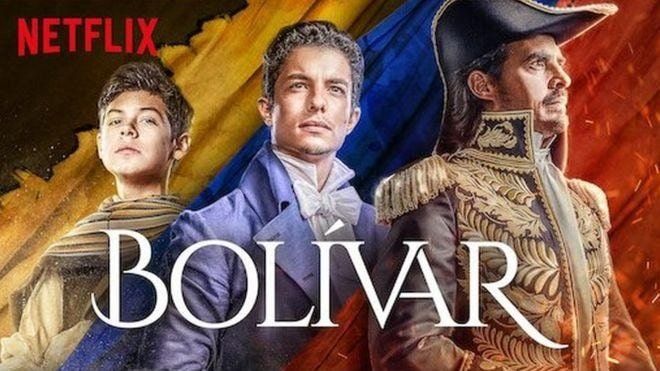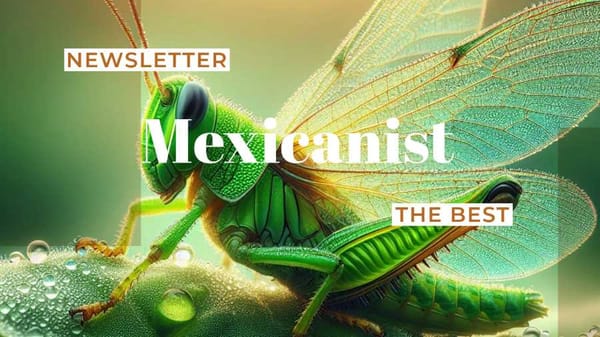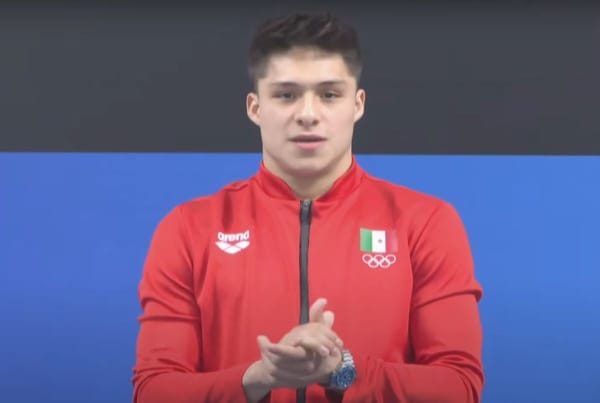What the Netflix series tells about Simon Bolivar
It premiered on June 21 in the United States and Latin America. The president of Venezuela, Nicolás Maduro, described the Netflix series about Simón Bolívar as "garbage".
Starring two Venezuelan actors, Luis Gerónimo Abreu and Jose Ramon Barreto, the series focuses on the complex personal life of one of the most important characters in the political history of America.

It premiered on June 21 in the United States and Latin America. The president of Venezuela, Nicolás Maduro, described the Netflix series about Simón Bolívar as "garbage". "The television stations of the Colombian oligarchy are going to inaugurate a miniseries of Bolívar," he said the day before the premiere. How many lies, defamations, and garbage will they put in the miniseries," he added. And then he asked his bases to come out in "defense (of Bolívar) against the lie of the Colombian oligarchy. Maduro's words marked the first reviews of the series, made up of 60 chapters of 50 minutes, which attempts to make an intimate portrait of the Liberator from Bolivia, Colombia, Ecuador, Panama, Peru, and Venezuela.
What it's all about
Starring two Venezuelan actors, Luis Gerónimo Abreu and Jose Ramon Barreto, the series focuses on the complex personal life of one of the most important characters in the political history of America. Born in Venezuela into a family of Creole landowners, Bolívar was orphaned at age seven and grew up under the iron fist of his grandfather and uncles. At just 19, he married María Teresa del Toro Alayza, his girlfriend two years ago who later died of a fever just eight months after the marriage.
Bolívar, then, dedicated himself to traveling, had multiple lovers and spent the most important years of his life with Manuelita Sáenz, a Quiteña who saved his life in an attack in Bogotá and was key to the independence project. The Netflix series, then, intersperses the story of the young and orphan Bolívar and the angry, idealistic and passionate Bolívar for independence.
"Our interest was to highlight the hero from a human perspective," explains Abreu. "We wanted to humanize him, with his defects and his errors, in order to make him great. Because Bolívar was not a bronze superhero like statues, but rather a human being, rather small and modest, who without superpowers became a superhero of flesh and blood."
But if in popular culture there is a consensus that Bolívar was a hero, the historiographic debate about the content of his political thoughts continues. From the presidency of Venezuela and with the media impact that has always characterized him, Hugo Chavez entered the discussion to give Bolivar the significance that, according to him, he omitted from the official story.
The president not only ordered the exhumation of Bolívar's remains to create a new image of his face but also, based on studies carried out in Venezuela of the same, questioned the narrative that Bolívar had died of tuberculosis. And he concluded that Bolívar had been murdered by the "Colombian oligarchy" in alliance with the United States. This reinterpretation of history is at the heart of the Chavista discourse, which welcomes Bolivar, and then, after his death, Chávez, as his martyr and mythological founder.
What's Behind Maduro's Criticism
Historian Omar Galindez, a frequent commentator in Chavista forums, sees in Maduro "an excessive zeal to try to take care of the figure of Bolívar". But he explains that behind the Venezuelan president's skepticism towards the series is the debate that Chavismo raised about the legacy of the Liberator.
"Chavismo exalted Bolívar's nationalist and anti-imperialist values and gave him a significance in the process of neo-colonization that has taken place in our countries, especially in Venezuela, an oil-producing country," he tells BBC Mundo.
According to critics, this reinterpretation of Bolivar's Chavista was an "arbitrary appropriation of a historical figure for political ends. In general terms, Colombia and Venezuela have had a historical divergence over Bolívar, whose legacy is usually contrasted with that of Francisco de Paula Santander, his independence ally who, supposedly, betrayed him when he sacrificed the project of Gran Colombia for federalism.
In theory, Santander represents institutionalism, liberalism, and federalism, while Bolívar represents the central Latin American continental dream. From this mistified rivalry between Bolívar and Santander, a subject on which dozens of books and theories have been written, the idea was created that Venezuelans promoted the union of peoples and Colombians, separation.
Simon Bolivar: the legacy of a unique leader in America
Simón Bolívar was born on July 24, 1783, in Caracas. Son of the Creole aristocracy of the city, his full name was actually Simón José Antonio de la Santísima Trinidad Bolívar Palacios Ponte y Blanco. On the 23rd birthday of Bolívar, his figure gained prominence among Venezuelan Creoles "when the destabilization of the old regime in Europe and America occurred". Indeed, the invasion of Napoléon Bonaparte to Spain in 1808 weakened the Spanish Crown and encouraged the Creoles throughout South America to claim the possibility of self-management. Bolívar was no exception and promptly managed to lead the independence movements in Venezuela.
After a series of advances and setbacks in the independence of the territories of Venezuela and Colombia, Bolívar was successful and, after the congresses of Angostura and Cúcuta in 1819, what is known as the 'Gran Colombia' was founded, a new republic that originally occupied the territories that are currently Colombia, Venezuela, and Ecuador. Panama would join two years later. Bolívar was named the first president of the new country. Even so, he continued his liberating campaign, moving towards Peru, where he continued the task that the Argentine José de San Martín had begun and was named 'supreme dictator' by the Creoles fighting against the Spanish Crown in that territory. He also advanced on Upper Peru, currently Bolivia.
Another of Bolívar's high points was his emphasis on the "unity of the continent. He not only thought that there were large countries on the continent but also convened, in Panama, a congress of republics of the continent," the historian said, referring to the Congress of Panama that finally took place in 1826 and that included, in its genesis, to the countries from Mexico to the United Provinces of the Rio de la Plata and the Empire of Brazil. The intention of Bolivar was to form an alliance of the countries to avoid a European reconquest.
It was a great initiative but it had a relative success because the Americans and the English saw it with suspicion, and with reason, because it was about to constitute a great Latin American unit. While Bolivar maintained a good relationship with the United Kingdom, focused on business relations, it did not keep a good concept of the United States. He once said that the curse of Latin American countries was to have the US close because he saw, as happened, in the following years of military interventions, the presence of troops and leaders.
The Bolívar project of the 'Gran Colombia' did not prosper and the State was divided into current Colombia, Ecuador, and Venezuela at his death. What remains of Bolivar is that unitary spirit. Another of the hero's achievements: having given birth to 'Bolivarianism', a current of thought that, although it has mutated, endures to the present. Bolívar is a continental phenomenon with very specific characteristics and there is no figure on the continent that has started a trend like Bolivarianism. Of course, the passage of time was changing the meaning of Bolivarianism in Latin American societies.




